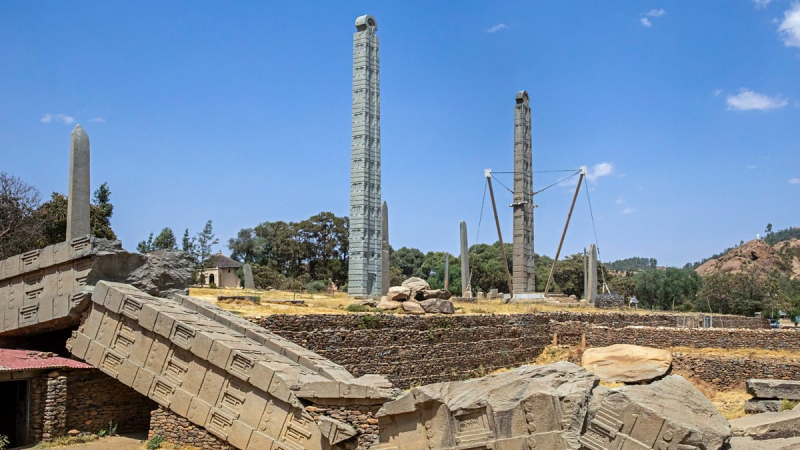The Empire Of Aksum
The Empire of Aksum started its first century AD in the area where Ethiopia is now located. Legend has it that this is the birthplace of the Queen of Sheba. Aksum is an important commercial center, where ivory, resources, agriculture, and gold for the Roman and Indian Empires. It was a wealthy society and the first African culture to issue its own currency, this currency at that time was a sign of great power. The Roman Empire mainly worked with another great superpower at that time, the Indian Empire. Both of these giant bodies trade a lot with the unknown Aksumites.
During the Empire of Aksum, the most special monuments were Aksum beer, and the huge carved towers acting as a funeral docks for kings and nobles. The first Aksumite worships many gods, the god is Astar. Later, in 324, King Ezana II converted to Christianity and became Aksum so it was a fierce Christian culture. According to local legends, a Jewish Queen named Yodit defeated the Aksumite empire and burned the church and books. Others believe it is a foreign queen Bani Al-Hamwijah will cause the decline of the empire. Other theories suggest that climate change decline and too much land use lead to famine. Aksum is on the list of the greatest civilizations that mysteriously lost civilized that once existed.
- Time: 100 AD
- Location: Ethiopia












